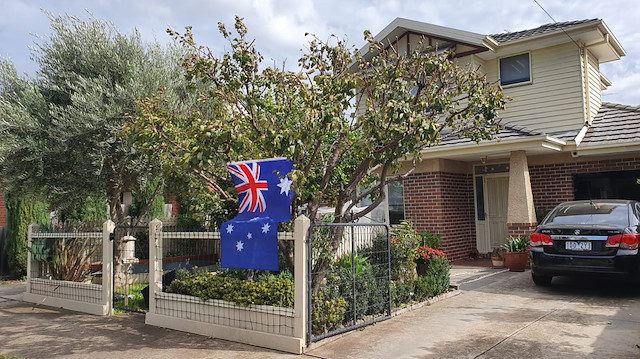
Citizens forced to mark Anzac Day at home due to COVID-19 containment measures
Australians have paid tributes to their fallen troops of World War I from their own homes due to the lockdown enforced to stem the spread of the novel coronavirus.
Normally drawing crowds of thousands, this year’s Anzac Day ceremonies on Saturday were only attended by officials, while citizens watched on television and many stood in their driveways at dawn to pay tribute.
Many Australians also took to social media to pay tribute to their ancestors.
Anzac Day, observed annually on April 25, is a national day of remembrance for soldiers of the Australia and New Zealand Army Corps (Anzac) who fought and died during the Battle of Canakkale in World War I.
- ‘Not first time’
Australian Prime Minister Scott Morrison addressed an empty auditorium at the Australian War Memorial in the capital Canberra on Saturday morning.
“This year, our Anzac Day traditions have been interrupted. But not for the first time. On Anzac Day 1919, the first after the Great War, there were no city marches or parades for the returning veterans, because Australians were battling the Spanish flu pandemic,” he said.
“Here in Canberra, on this day 75 years ago and in the midst of war, our then-Prime Minister John Curtin called for every citizen to give equal measure of devotion, what our servicemen and women give every day.
“This Anzac Day, it’s been passed to us. And so together, with faith in each other, and guided by the lives and examples of those who’ve gone before, we grasp that torch and we raise it high again lighting up the Anzac dawn. Lest we forget,” the prime minister said.
Many survivors and their descendants also travel to Turkey on Anzac Day to mark the sacrifices and friendship that has developed between the nations since World War I.
The Battle of Canakkale took place in the northwestern Turkish province of Canakkale's Gelibolu (Gallipoli) district in 1915, and marked a turnaround in favor of the Turks against the Allied forces.
Tens of thousands of Turkish nationals and soldiers died, along with tens of thousands of Europeans -- around 7,000-8,000 Australians and nearly 3,000 New Zealanders.


